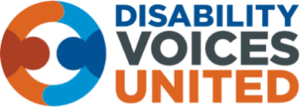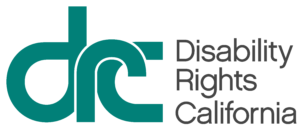Cultivating Change: You Can Do This!
by William Del Rosario
The story of my communication has many working edits. Most of my life people have been trying to figure out how to get me to communicate. The thing is that they sometimes would forget the teaching and get far from the art of communication.
People often forget that I am able to pinpoint my own thoughts. Giving me choices or words, they think I should say is an exercise in repetition, not a conversation. How would it become data on communicating when I am just being told what to say? The hard thing is I get stuck on what is practiced. How many times do you want to know what I ate for dinner last night? What we want are varied topics to discuss and learn. Even when we are discussing something new, an emerging communicator can be made part of the conversation. Share with them and saturate the mind with new ideas until they are equally expressive. When we are given the same chance as the speaking world there are unlimited opportunities to design our own futures.
The self-advocate takes the lead when given the opportunity to communicate with their modality of choice. This can look different across people and days. For me, on the days I need more support I may ask for anything from choices to a letter board to someone that can help me by holding my keyboard while providing me the self-regulation to be able to type. Developing my support is something I decide in each situation. Thinking about how you are feeling about the environment as a participant in the conversation and how you can best be heard can help you express the supports you’ll need.
Team meetings can be helpful for everyone to hear from me what I need. For example, I am better with text than with picture-based communication and curriculum. Every person is different and it is important to involve them in the conversation.
I would like to add that everyone can learn from the communicator even as they are learning how to better express themselves. A team who begins to involve the communicator by having them be a part of the decision process will build the foundation of trust and real presumed competence. This can be done for all types of communication, from choices, to 26 letter typing, to speech. Can we all have an effect on the future with this change? I believe so!
I would really like to give the team the encouragement to share communication success. We are not all experts. By bearing this in mind we can keep the team working together.
We each can reach towards greater independence by carrying forward the daring work our parents and family have started. The way to do this is an evolving process. The foundation for me to be able to lead my team starts with communication access. For me this has just begun with writing down the kind of communication supports I need. It can be hard to get your voice heard. Giving me the time to type and then ask the real questions about your thoughts before making decisions about me are two important things my team can do. Together we can change minds and shift the story from needing others to decide for us to a life with real advocacy on the road to independence. I believe in you, thank you for believing in me.
The Communication Disabilities Access Network hosts blogs by self-advocates. If you’re interested in pitching a blog idea to us, please email us at info@dvunited.org.



